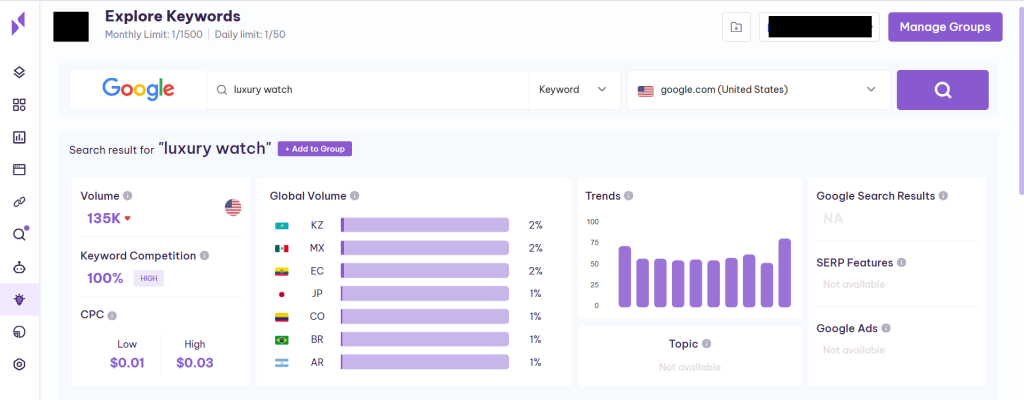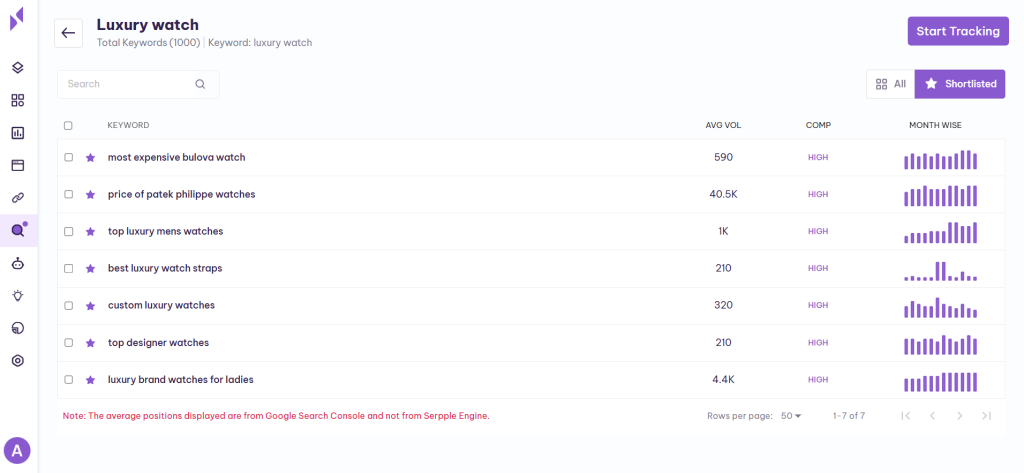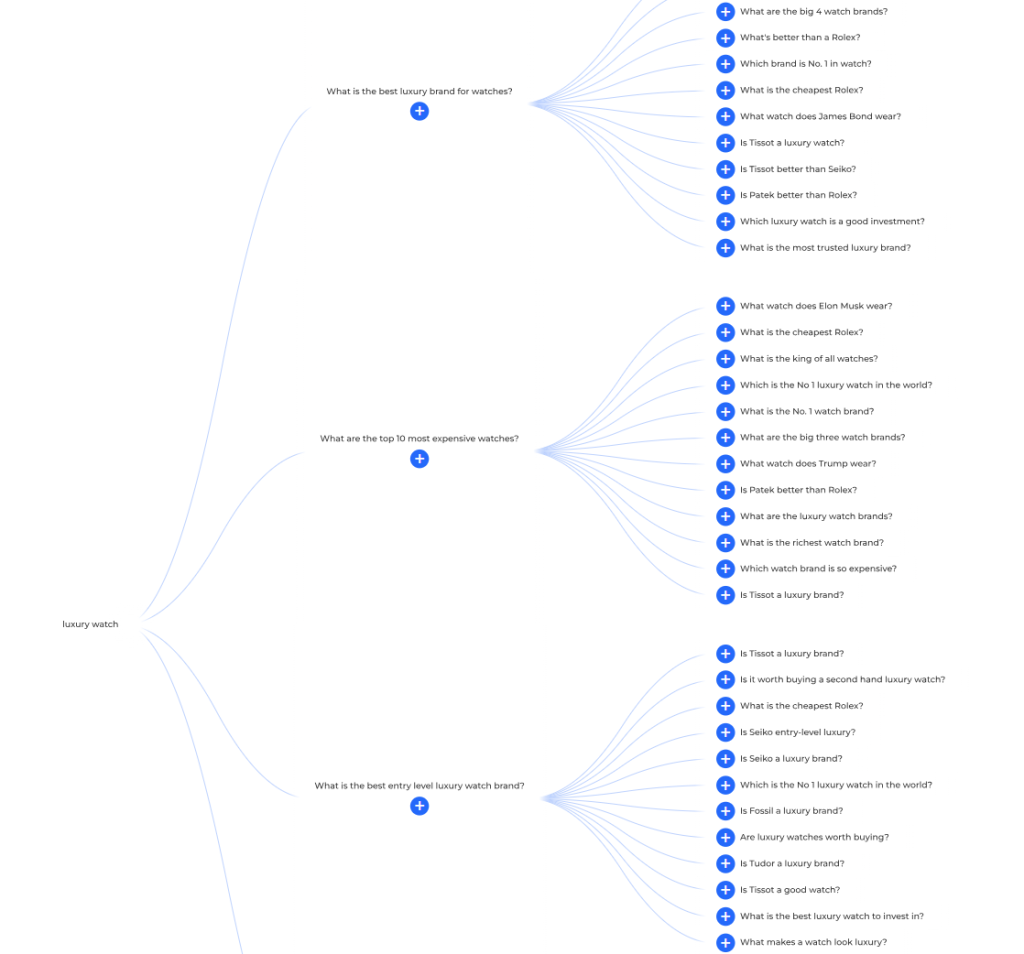Topical authority may sound like an SEO buzzword. But it’s the backbone of how websites earn trust, whether it be from Google or real people.
SEO used to be a game of chasing high-volume keywords, stuffing them into content, and building links like there was no tomorrow. Didn’t matter if a blogging website covered content related to home improvement or cryptocurrency — if your site attracted enough links, traffic followed.
Not anymore.
Search engines have evolved. So rather than rewarding sites that sprinkle content across different niches, they now favor depth over breadth. And that means that Google recognizes authorities on specific topics, so if you cover all aspects of a niche with well researched and helpful content, Google views you as the authority on that subject. And most importantly readers do as well.
So how do you establish topical authority?
Content has to be structured correctly and your expertise shown through internal linking and topic clustering in a smart way. Fret not, if you don’t know how, in this guide we’ll break down everything you need to know about topical authority.
By the end, you’ll understand exactly how to make your website the resource in your niche with common mistakes that don’t work anymore.
What is Topical Authority?
As you might expect, topical authority is basically positioning your website as the absolute expert on a niche or subject. When you consistently publish extremely well-researched material about a specific subject or niche on your website, you communicate to both engines and readers that your site is an authority on that particular niche/subject. This focused approach will enhance your credibility and also improves your search engine rankings for related queries.
Difference Between Topical Authority and Domain Authority
Both concepts deal with authority but works differently:
- Topical Authority: Your authority within a specific niche. It’s how well and completely you cover topics in a specific niche.
- Domain Authority: It is a Moz-developed metric that gauges a website’s predictive ranking across SERPs. It’s affected by things like how many inbound links you have and how reputable they are.
Basically, while domain authority provides a broad measure of a site’s overall strength, topical authority is a score on subject-specific expertise. However there is not a specific measure to check topical authority but you can gauge it by comparing keyword dominance with your competitors.
Connection Between Topical Authority and Google’s E-E-A-T
E-E-A-T stands for Experience, Expertise, Authoritativeness, and Trustworthiness. This is the criteria in defining content quality. Building topical authority is closely related to E-E-A-T:
- Experience: Documenting your personal experience in your niche.
- Expertise: Showcasing your knowledge with original and detailed content.
- Authoritativeness: Being recognized by others in your field, usually in the form of backlinks and mentions.
- Trustworthiness: Offering information that is accurate and reliable, one that readers can trust.
By narrowing your focus on a specific niche or a subject and covering it extensively, you naturally enhance these E-E-A-T elements on your website which overtime leads to better search rankings and reader trust.
How Topical Authority Works
The Google Algorithm Updates: The search algorithm by Google has evolved more advanced and better equipped to comprehend the content context on the web. The Hummingbird update in 2013 shifted focus from individual keywords to overall topic comprehension, enhancing semantic search capabilities. Later, the BERT update in 2019 improved Google’s ability to interpret the nuances of language for making search engines more capable of producing search results according to the user intent. This updates focused on creating in-depth content that targets specific topics (rather than individual keywords) to earn more search traffic.
Semantic Search and the Keywords Relationships: Semantic search is not just focused on matching up exact words strung together in queries but grasp the meaning behind it. For instance, if a user searches for “apple benefits” Google algorithm determines whether they are looking for the health benefits of the fruit or benefits of Apple products. By covering related subtopics and using varied yet relevant keywords, you help search engines understand your content’s depth and relevance, boosting your topical authority.
Content Clusters and Internal Linking: Organizing your content into clusters around central themes enhances topical authority. Start with a broad “pillar” page that provides an overview of a subject. Then, create detailed “cluster” pages focusing on specific aspects of that topic. Link these pages together strategically; this internal linking structure signals to search engines the relationship and importance of each page, improving your site’s overall authority on the subject.
Example: How Niche Website Outrank High Domain Authority Site
A specialized coffee site “coffeeam.com” with a domain authority of 35 ranks #1 for unusual coffee brewing methods, while The “huffpost.com”, with a domain authority of 92, ranking at #5. Despite the massive difference in domain authority, the niche site wins because it has stronger topical authority.



This example is not just for niche websites. Even broad niche sites—like those covering digital marketing—can build topical authority by creating deep content clusters on subtopics like content writing, SEO, and backlinks. The more in-depth and interconnected your content, the more search engines (and readers) see you as the expert.
Why is Topical Authority Important?
1. Higher Search Rankings
Google’s algorithms favor websites that demonstrate comprehensive coverage of a subject. By building topical authority, your site is more likely to rank higher in search results, as search engines recognize your expertise and relevance in the field.
2. More Organic Traffic
In-depth content on a specific topic not only improves search rankings but also increases visibility. As your site becomes a trusted resource, more users will find and visit your pages, leading to a boost in organic traffic.
3. Enhanced Credibility & Trust
Establishing topical authority positions your brand as an industry expert. This recognition fosters trust and credibility among your audience, making them more likely to engage with your content and services.
4. Better Audience Retention
Authoritative content keeps readers engaged. When visitors find valuable and reliable information, they’re more likely to stay longer, explore other content, and return in the future which improves overall audience retention.
How Is Topical Authority Important?
Higher Search Rankings: Google’s algorithms reward websites that show in-depth knowledge of a niche/subject. By establishing topical authority, your site has a higher chance of ranking well in search results as search engines will acknowledge your expertise and relevancy to those topics.
More Organic Traffic: Deep content on a topic not only boosts its search rank, but expands visibility. The more users that find your pages, the more they will visit your site and increase the organic traffic to it as your site becomes a trusted resource.
Enhanced Credibility & Trust: Topical authority portrays your brand as an expert in the industry. This support increases trust and credibility with your audience, increasing their likelihood of engaging with your content and services.
Better Audience Retention: This type of content holds the attention of readers. This increases audience retention overall, as users who discover helpful, trustworthy information are more likely to remain on your site and check out other content, as well as return in the future. It will eventually increase “Brand Searches” which is a strong E-E-A-T signal.
Secrets to Building Topical Authority Effectively
1. Conduct Topic Based Keyword Research
Building topical authority starts with strong keyword research. The goal is to find a high-search-volume seed keyword with plenty of informational topics you can cover.
Take “luxury watch” as an example. I used Serpple Keyword Research Tool to find keywords for topical authority. The first screenshot shows it has 135k searches in the U.S with the 100% keyword competition which is very high. No worries, we are not directly going to target this keyword. This is a seed keyword and we are using it to find the keyword opportunities related to luxury watches through it.

Based on these seed keywords, you will find many topic based keywords you can create separate content on and internal link them to each other as per relevancy. Covering these topics will help you to build topical authority and increase rankings of your website on all of these keywords without securing a lot of backlinks. In the below screenshot, I have shortlisted a few keywords to show you an example. But for building topical authority it’s not enough, you have to dig deeper into keyword research, pick the relevant keywords and shortlist them.

To expand the list, users can also use tools like “Also Asked” or Google’s “People Also Search”, which help find related queries to your seed keyword. I chose a “luxury watch” here.

Choose topics with search intent in mind to strengthen topical authority. Informational keywords should take priority, but adding some transactional ones like “Top Luxury Mens Watches” or “Where to sell luxury watches” can also be useful. Leave commercial keywords like “Buy Rolex online” for product pages, and strategically link to them from your informational content to boost their authority.
2. Create Content Clusters
Once you have your keyword list, the next step is clustering related keywords into broader topics. AI tools like ChatGPT or other keyword grouping tools can help by analyzing search intent and suggesting which keywords should be covered together.
In the screenshot below, I used ChatGPT to analyze my keyword list. It grouped the keywords based on intent and categorized them into relevant content types, along with related keywords that can be included in the blog.

Sometimes, keywords might seem like separate topics, but they actually serve the same user intent and should be covered within a single piece of content instead of multiple articles. On the other hand, genuinely distinct topics should have their own dedicated pages but remain interlinked within a structured content cluster.
At this stage, you can either:
- Plan ahead, mapping out which articles to write and how they’ll be internally linked.
- Write content piece by piece and add internal links as you create new articles.
One common mistake SEOs make is neglecting backward internal linking. Usually, SEOs add links from old articles to new ones but forget to go back and link new content to older posts. This weakens the overall structure and makes it harder to build topical authority, so make sure to consistently interlink both ways with descriptive anchor text. Once done do not forget to regularly check for the orphan pages and broken links and fix them to improve crawlability and make your topical authority effective.
3. Write Comprehensive, High-Quality Content
Comprehensive and detailed content is crucial not just for engaging readers but also adding credibility to your niche. The emphasis should be on depth, clarity and value, rather than rushing to publish as much as you can. According to HubSpot, 83% of marketers believe that prioritizing content quality over quantity leads to better results, even if it means publishing less frequently. Well-researched, structured content that thoroughly covers a topic not only helps with SEO but also improves audience trust and retention.
To create impactful content:
- Begin with extensive research: This step will help you build a strong foundation of credibility.
- Establish a concise content structure: Prioritize the organization of content to enhance flow that seamlessly guides the reader from one area to the next for maximum readability.
- Focus on clarity of writing and interesting word choice: Your writing should be clear but also engaging, as you can optimize for search relevance by using keywords related to your content, which helps semantic search.
- Add Visuals: Use images, videos, and infographics to increase engagement and help explain complicated concepts.
- Show your knowledge and learning: Include insights based on your knowledge and real life experience to build credibility and authority.
Finally, high-quality content isn’t just about writing but also about presentation and SEO optimization. Such as using relevant keywords naturally, crafting easy to understand and SEO friendly headline structure and ensuring internal linking help boost visibility and authority. If you want to dive deeper into SEO copywriting techniques, check out this beginner-friendly guide: SEO Copywriting Guide.
4. Leverage External Authority & Backlinks
While topical authority is largely about content, links still matter. In simple words, Backlinks are the booster pack for your content that can land them to better search results. They also help in crafting topical relevance; when your web pages get natural links, it conveys to Google that your site is considered an authority in your niche. That said, you want quality and relevant links with the most natural anchor text.
To find out how you can build high quality links, which work for you not against you. Explore these proven link-building strategies and don’t miss our guide on avoiding common link-building scams to maintain a clean link profile.
5. Increase Publishing Frequency Without Sacrificing Quality
You should always prioritize publishing quality content, but that doesn’t mean simply posting a couple of articles a month — particularly if your site is still new and you’re trying to build topical authority. Competitors sites already have a lot of content and most of the niches you are in are already been covered. If you want to maintain and stay relevant, you require a content plan that manages quality and consistency simultaneously.
In the beginning 2-3 articles every week is a good strategy to follow. This frequency enables your site to get exposure, diversify coverage of your niche and gain authority quickly. With a growing content library and established presence in your niche, you can modify posting frequency according to competition level and content depth. But early on, frequency of publication matters a lot — otherwise you risk waiting way too long to see any meaningful results.
6. Regularly Updating & Optimizing Existing Content
Older content naturally depreciates in value over time, a phenomenon known as content decay. Search engines reward new and relevant information, so the moment your content becomes outdated or less engaging, rankings begin to fall. It is easy for competitors to outrank you by publishing content with recent updates and better optimization.
The solution is to routinely audit and refresh outdated posts. Identify low-performing content using Serpple On-Page SEO Checker, and then refresh it by:
- Updating it with recent data & insights to keep it accurate.
- Improving media (image, video, infographic.) for better engagement.
- Improving SEO by optimize headings, internal linkings or even remove links to 404 or orphan pages.
For a more in-depth look at effectively updating content, check out our guide on how to effectively update old content for SEO.
Common Mistakes to Avoid When Building Topical Authority
If you want to dominate search rankings, you need original helpful content not just content with keywords stuffed into generalized articles. But too many websites sabotage their own credibility by making these mistakes:
1. Thin, Keyword-Stuffed Content
Trying to manipulate search engines with fluff-filled, keyword-heavy content. This is the recipe that doesn’t move the ranking needle at all. Google sees through it, and readers definitely do. So instead of writing generalized information which everyone already knows, put efforts in making well researched, helpful content that Google and Your Reader Will Love.
2. Chasing Single Keywords Instead of Topic Clusters
Focusing on just one keyword per post is like putting a single puzzle piece on the table and calling it “complete.” Instead, build interconnected topic clusters. Because many keywords seem to be different but when you actually search those keywords on Google, you will find the same articles popping up. This means, those keywords have the same intent and have to be covered in a single topic. You can use AI to create clusters but still check every keyword’s search result if you have a tiny bit of confusion because if you messed this up. Later it can lead to the cannibalization issue. Once you create keyword clusters, cover them in a broad, in-depth content that signals expertise across an entire subject.
3. Ignoring Internal Linking & Crawlability
If your content exists in isolation, sometimes it can be invisible to the crawlers. Internal links connect the dots for search engines and users and help boost rankings and engagement. During audit if you find broken links fix them or risk getting buried.
4. Letting Content Rot
Outdated content is a credibility killer. If your 2020 SEO advice is still sitting untouched, Google (and your readers) will move on to read 2025 SEO advice. So, keep your content fresh, accurate, and up to date.
Conclusion
Building topical authority takes time, effort and persistence, but it’s all worth it because it can help your website get higher rankings, credibility, and trust. Focus on value-driven content, cover entire topic clusters, and maintain a solid internal linking strategy. Don’t let outdated content drag you down—keep it fresh and relevant.
It’s time to take action. If you’re starting fresh, begin by researching your niche, conducting keyword research, and mapping out key topics that position you as an authority. Already have a website? Then it’s time for a deep dive—analyze which pages are already ranking well to identify where you’ve built topical authority. Once you pinpoint those strong categories or topics, expand on them with fresh content and update existing pages to strengthen your position.
For a streamlined approach, use Serpple to uncover the right keywords, monitor rankings, and fine-tune your strategy. Topical authority isn’t built in a day, but with consistency, you’ll see lasting results. Get started now!
Published by
Adam White
Adam White is a 20+ year SEO professional who has optimized over 400 websites, built and sold over 20 internet and SaaS businesses all with SEO as the main traffic source. Follow him on Twitter/X
All stories by Adam White


